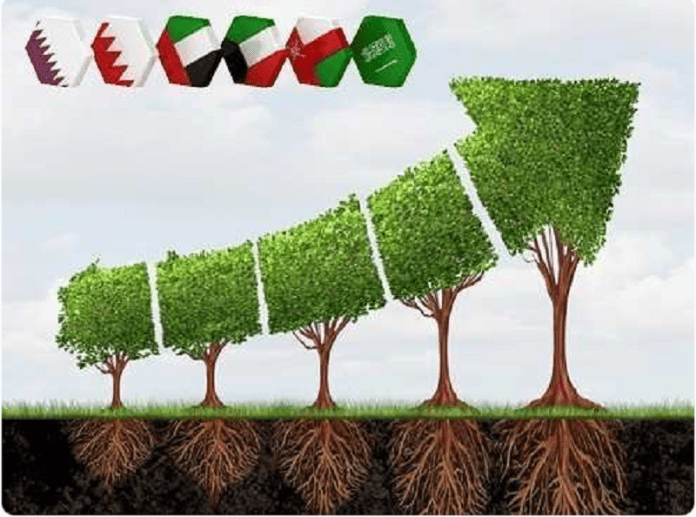The indications are clear and strong that the Gulf states will likely remain as important in global affairs in the coming decades as they were in the twentieth century, this is what a report prepared by The Economist concluded on the global energy crisis and geopolitics, and how the war in Ukraine reshaped the oil and gas market in the world, so that the countries of the region will be the most prominent player in it, adding that a new Gulf is emerging on the global scene.
For this reason, politicians in Western countries, who are facing an energy crisis and high costs of living, are flocking to the Gulf states, the last of whom is Olaf Schulz, the German chancellor, as Germany has been searching since Russia cut off gas from it for alternative markets that it can import energy from, reports a local Arabic daily.
The latest oil and gas boom is occurring alongside deeper market trends: re-engineering global energy flows in response to Western sanctions and climate change, and reshaping geopolitical alliances in the Middle East as countries in the region adapt to a multipolar world, where America is no longer a reliable guarantor to achieve Security. The result is a new bay destined to remain pivotal for decades to come.
The Gulf states belong to a region that has gone through two difficult decades. Amid wars and uprisings, one million people have died as a result of violence in the Middle East, and its share of global GDP has fallen from 4% in 2012 to 3%. America has reduced its military presence in the wake of the disasters in Iraq and Afghanistan, leaving old allies, including the Gulf states, suspicious of the security vacuum that Iran and its proxies are filling. While the Gulf countries have faced a long-term decline in global demand for fossil fuels, even as the countries of the world suffer from reduced rainfall and rising temperatures due to climate change.
It’s a daunting starting point, but two new forces are at play — the first are changes in energy markets. At current prices, the Gulf states could earn $3.5 trillion over the next five years. Western sanctions against Russia are reorienting how energy is traded around the world. With Russian production flowing to the east, the Gulf is expected to become an even greater resource for the West.
In response to stressed energy markets, Saudi Arabia and the UAE are ramping up capital investment in oil with a long-term goal of being last in the industry, helped by the fact that they have lower cost and less polluting extraction processes. Together, they aim to increase production from 13 million barrels per day last year to 16 million in the medium term. This will drive market share up as governments around the world clamp down on emissions and lower global demand for oil.
The sources added, as Qatar expands its North Field project in the next few years, LNG will become what Taiwan represents for advanced semiconductors: its target annual production is equivalent to 33% of total LNG traded worldwide in 2021. There can be no better timing amid the global pressure on the gas market.
The Economist pointed out that the indications are clear and strong that the Gulf region will likely remain as important in global affairs in the coming decades as it was in the twentieth century, despite the hopes of some American strategists that its importance will fade away. In the field of oil and gas, its share of Europe’s imports could rise from less than 10% today to more than 20%. In the area of finance, the Gulf’s $3 trillion reserve and sovereign assets will grow, which will lead to more investments abroad, such as Qatar’s stake in Porsche’s bid next week.
The Economist said that the economic weight of the Gulf states in the Middle East has reached its highest level since 1981, at 60% of regional GDP, and will rise further.
It indicated that the new Gulf is emerging, although some things will remain as they are, but it will remain a volatile region and it is impossible for the world to ignore that.
The Economist pointed out that the Gulf states are now trying to follow a confusing economic path. It plans to expand fossil fuel production for 20 years or so and then reduce it after 2045. It is possible to see how that would work in theory: huge revenues should be quickly reinvested in a high-tech economy based on renewable energy, power systems, hydrogen and water desalination that enjoy sufficient dynamism to create millions of jobs for a large number of young people. In practice, the task is huge. Even if it succeeds, it would make the Paris Agreement’s climate goals unattainable.

















